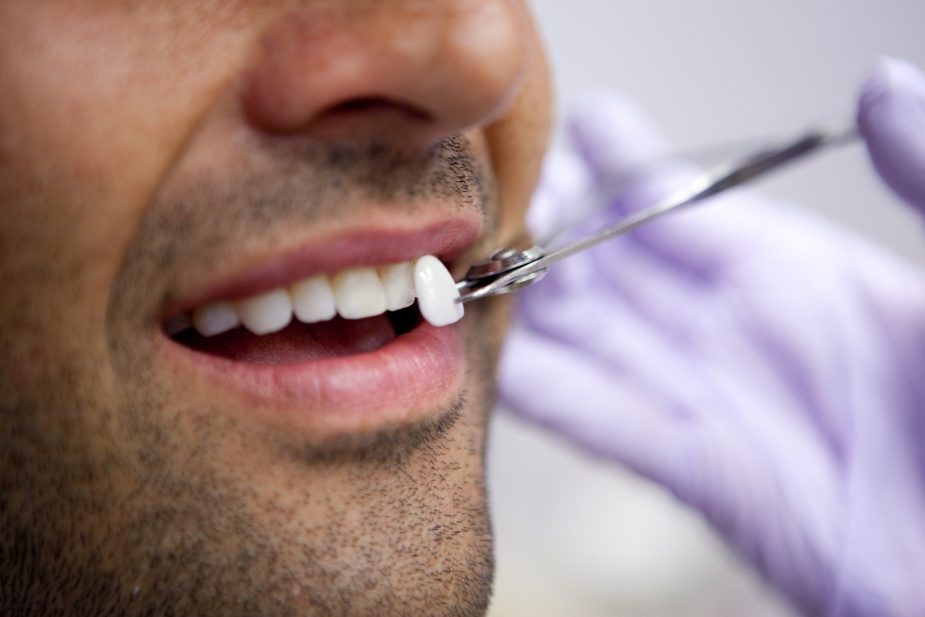Dental veneers are the thin custom-made shells of tooth-colored substance experts designed to cover the front surface of the teeth to improve your looks. They bond these veneers to the front of the teeth changing their color, size, length, or shape. They create dental veneers from porcelain or composite resin substance.
Compared to resin veneers, porcelain dental veneers are more stain-resistant. These Porcelain veneers near me also closely resemble your natural teeth regarding how well they reflect light. With your dental specialist, you must decide which veneer material is ideal for you.
What Is The Procedure For Dental Veneers?
It usually takes three visits to the dental office to get dental veneers, first for the consultation and the other two visits for creating and applying the veneers. An angle or multiple teeth can undergo the veneering procedure at the same time.
How Do Dentists Do Diagnosis And Treatment Planning?
You will explain to your dental care provider what you hope to achieve. Your dentist will assess your teeth at this visit to determine whether dental veneers are a good option for you. They will also go over the procedure’s benefits and disadvantages. They might make impressions or molds of your mouth and teeth and take X-rays.
How Do They Prepare For Dental Veneers?
Your general dentist will reshape the tooth’s surface to match the thickness of the veneer that they’ll apply to the tooth surface to prepare a tooth for a veneer. You and your dentist will decide if it’s necessary to numb the area before shedding the enamel. Your dental care provider will next create a model of your tooth, also known as an impression. They will deliver this model to a dental lab, where they will make your veneer. On average, the veneers return from the dental lab in two to four weeks. In the meanwhile, you can use Temporary Veneers.
How Do They Bond Dental Veneers?
Before securely bonding the veneer to your tooth, your dentist will place it on your tooth to check its fit and color. They will remove and trim the veneer frequently to obtain the ideal fit. With the appropriate cement color, the color of the veneers is changeable. After that, your tooth will be cleaned, polished, and etched to prepare for the veneer.
They will first roughen up the tooth’s surface to enable a strong bonding process. After coating the veneer with a specific cement, dentists attach it to your tooth. Once the veneer is in the ideal place, your dentist will illuminate it with a special light beam or heat to activate chemicals in the cement and hasten its rapid hardening.
The final steps entail removing any extra cement, assessing your bite, and making necessary corrections. To evaluate your gums and the veneer placement, your dentist might ask you to come back for a follow-up dental appointment in a couple of weeks.
Can You Differentiate Between Implants, Veneers, And Dental Crowns?
Dental veneers are not the same as crowns or dental implants. While crowns encase the entire tooth, veneers simply cover the tooth’s front surface.
Also less intrusive are veneers. If you require a crown, your dentist must file or grind down more of your teeth than is necessary to install a veneer to prepare it for the crown.
They place an implant into the bone to replace a missing tooth. Then they attach a crown on top of it. After inserting the dental implant, it may take months to heal sufficiently to fix the replacement tooth on top.
How To Care For The Veneers After Placing Them?
The healing process isn’t as lengthy as other dental procedures. Instead, you can eat and chew as usual when they bond veneers, and any numbing agents wear off. Ensure not to bite or chew your tongue or cheeks while the effect of anesthesia wears off. You could sometimes find that the dental veneers feel slightly harsh immediately after application.
After a few days of regular eating and brushing, they smooth out the rough patches, and your dentist can smooth them out if they don’t. Typically, traditional porcelain veneers last for at least ten years and No-prep veneers last roughly 5 to 7 years. You can ensure they last longer by taking a few preventive measures.
Conclusion
We hope the above-provided information will help you learn some beneficial and informative details regarding dental veneers. For further informational facts, please visit urbndental.com.

